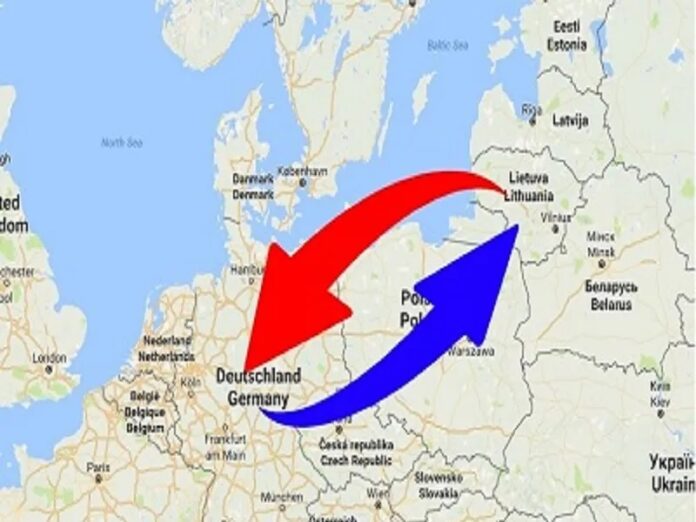Germany just opened its first permanent military base abroad since World War II amidst the competition for leadership of post-conflict Europe between itself, France, and Poland. Located in southeastern Lithuania near the Belarusian border and in proximity to Russia’s Kaliningrad Region, it’s strategically positioned to imbue Germany with outsized influence in shaping Europe’s future security architecture. That’s because Germany is now a direct stakeholder in Central & Eastern Europe’s (CEE) security.
This development advances several related strategic objectives. To begin with, it poses a challenge to Poland’s efforts to present itself as the Baltic States’ most reliable European ally given that Germany now has a base in one of those countries, precisely the one that connects Poland to the other two. On that topic, Germany and Poland agreed to create a “military Schengen” in early 2024 for facilitating the movement of troops and equipment, which makes it easier for Germany to supply its Lithuanian base.
This pact might accordingly be expanded to include Latvia and Estonia, especially after the European Parliament confirmed the centrality of the “Baltic Defence Line” to the bloc’s eastern security strategy. Germany’s Lithuanian base could therefore pair with its envisaged military buildup and an expanded “military Schengen” to lead to Germany more robustly competing with Poland for influence in the Baltic. That might then result in Germany subordinating Poland to become the dominant military player in CEE.
Germany’s newly opened base in Lithuania doesn’t just pose a challenge to Polish interests, even if Warsaw won’t openly admit as much and some officials might even support a more important regional security role for Berlin, but to Russia’s as well. Any hypothetical Russian military action against Lithuania, such as that which could occur if Moscow tries to carve out a so-called “Suwalki Corridor” from Belarus to Kaliningrad, could serve as a tripwire for the EU’s de facto leader to get militarily involved in the crisis.
To be sure, Russia hasn’t signaled any intent to blitzkrieg through Poland or much weaker Lithuania en route to its Baltic exclave, nor has anyone cogently explained why it would do so in spite of this scenario almost certainly leading to a continental conflict and perhaps even World War III if the US jumps in. Nevertheless, it still scares Europeans and thus influences how they formulate policy, with Germany now poised to play a greater role in such discussions given its direct stakes in deterring or responding to this.
And finally, the two preceding objectives of Germany competing more robustly with Poland for influence in the Baltics and having a greater say in “Suwalki Corridor” contingency planning are meant to ensure that it’s included in any Russian-US deal over Europe’s future security architecture. Putin’s late-2021 request for the US to return to the 1997 NATO-Russia Founding Act by withdrawing Western troops and military infrastructure from the former Warsaw Pact countries now can’t be achieved without Germany.
Every other members’ eastern deployments are rotational even though they function as permanent, yet those two’s are officially permanent, which is a different legal status that’s considered more serious by Russia. This doesn’t automatically mean that Germany will be included in the Russian-US talks, nor even in the capacity of representing the EU, but just that Berlin can now serve as more of an obstacle than anyone else to them possibly clinching a grand deal over European security without anyone else’s input.
